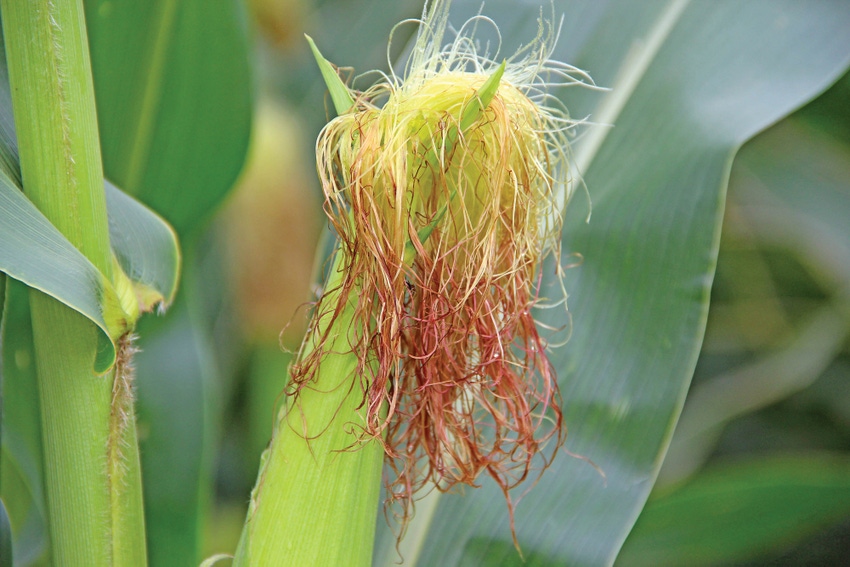August 6, 2012

Louisiana corn farmers need to be proactive in their approach to weed control, advises Daniel Stephenson, LSU AgCenter weed scientist.
It starts four to six weeks before planting with a burndown of weeds. The end result removes weeds that will compete with corn for moisture and nutrition and eliminates habitat for damaging insects such as cutworms.
“It’s just imperative that a corn grower start clean,” Stephenson said.
A pre-emerge herbicide is essential to prevent new weed growth, and it should be mixed with atrazine to give a full spectrum of grass and broadleaf control. “It is still the bedrock we need to plant our corn weed control program on.”
Choosing a corn hybrid with Roundup Ready and Liberty Link traits will allow a producer to use glyphosate and Liberty for management of glyphosate-resistant johnsongrass.
But, Stephenson said, it is imperative that farmers avoid using an organophosphate insecticide in furrows, such as Counter, because those chemicals interfere with a plant’s ability to metabolize herbicides such as Corvus, Capreno, Realm Q, Accent Q, and other ALS-inhibiting herbicides.
Many farmers assume that a herbicide will have three months of residual activity, but such long-lasting chemicals were taken off the market long ago.
“Don’t expect any herbicide to give you three months of weed control,” Stephenson said.
Most farmers only spray their crop when it gets about 12 inches tall, with no follow-up. But a second application is becoming more commonplace.
Read: Wheat helps corn and soybeans prosper
Because corn is harvested in Louisiana in July and August, weeds in harvested fields have several months to thrive. Farmers who don’t control these weeds are recharging the weed seed bank, meaning the fight against weeds will be even more difficult in the next growing season.
Using a residual herbicide, such as Valor mixed with a nonselective herbicide like paraquat, or making multiple tillage passes to destroy weed vegetation, is a good way to suppress seed production until cold weather arrives.
Report: Corn acres up as weed resistance issues persist
You May Also Like




